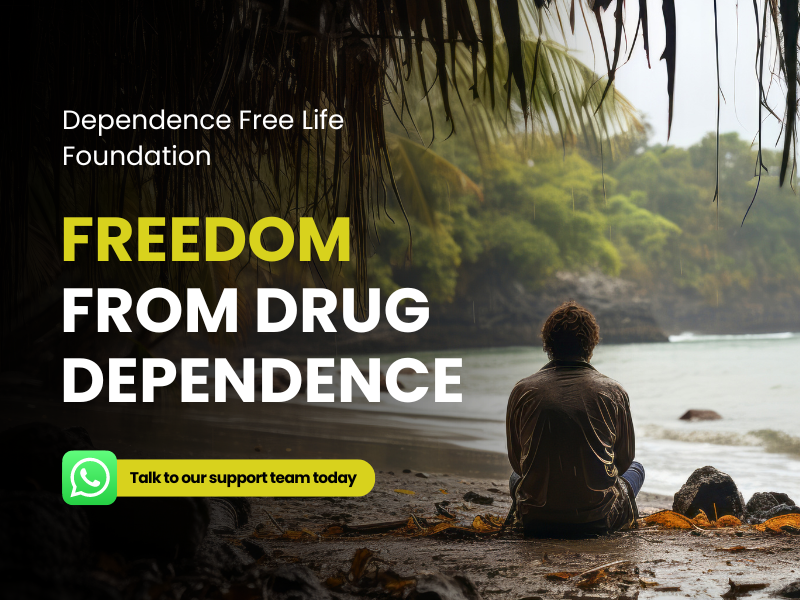Whether your child is meandering through school, cruising through his college and racing through his adult life — here are tips to help guide him/her towards a healthy life at every age !
5-to-8-year olds are still tied to family and eager to please but they're also beginning to explore their individuality. In addition, your kid begins to spend more time at school with other students and is exposed to information (including messages about drugs, smoking and alcohol) from various mediums like the media and popular culture. It's very important that you continue talking to your child about a healthy dependence free lifestyle and stress that out of all the voices your child hears, yours should be the guiding force.
Here are 9 tips to help you guide your child toward a healthy, dependence free life:
- Keep your discussions about smoking, alcohol, and other drugs factual and focused on the present. Long-term consequences are too distant to have any meaning. Let your child know that people who drink too much alcohol get sick and throw up, or that smoking makes clothes stink and causes bad breath. Keep the explanations simple and easy for your kid to relate to.
- Talk to your kids about the drug / smoking / alcohol-related messages they receive through advertisements, the news media and entertainment sources. Some TV shows or movies may even glamorize smoking or alcohol abuse. Remember to ask your kids how they feel about the things they've heard — you'll learn a great deal about what they're thinking.
- Consider the following topics when discussing with your child:
- Why are drugs illegal?
- What harm such substances can do to users?
How to Prevent Addiction at Every Age?
Preventing addiction across all stages of life requires proactive and age-appropriate approaches. Here’s how to help prevent addiction at each life stage:
Early Childhood (Ages 0-5)
- Strong Emotional Bonds Establish secure, nurturing relationships between children and caregivers. Emotional security fosters healthy brain development and reduces future risk of addiction.
- Positive Role Models Children mirror the behaviors of adults around them. Display healthy coping mechanisms and avoid substance use in front of children.
- Age-Appropriate Education Begin teaching children the importance of health, wellness, and making good choices in simple, relatable ways.
You should also consider talking about the differences between the medicinal uses and illegal uses of drugs, and how drugs can impact the families and friends of users.
Set clear rules and behave the way you want your kids to behave. Tell them the reasons for your rules. If you use tobacco or alcohol, be mindful of the message you are sending to your children.
Help your child explore new ways to express their feelings. Kids who feel shy in one-on-one conversation with parents might open up through painting, writing, or emailing a friend or relative. Do not feel dejected, and be encouraging to the idea of your kid expressing in his own comfort zone.
Work on problem solving by focusing on the types of problems kids come across. Help them find long-lasting solutions to homework trouble, a fight with a friend, or in dealing with a bully. Be sure to point out that quick fixes are not long-term solutions and that running away from a problem is not the solution.
Give your kids the power to escape from situations that make them feel bad. Make sure they know that they shouldn't stay in a place that makes them feel uncomfortable or bad about themselves. Also let them know that they don't need to stick with friends who don't support them.
Get to know your child's friends — and their friends' parents. Check in by phone or a visit once in a while to make sure they are giving their children the same kinds of messages you give your children.
Sign your kids up with extracurricular activities, sports, dance, community groups or programs that emphasize the positive impact of a healthy lifestyle. Engaging your kids in such activities helps build team spirit and gives them ways to channelize all their energy in activities that reinforce healthy living. Your kids will have fun, stay active and develop healthy friendships.

Substances in a 5-8 year old child’s world can include: Tobacco, Alcohol
9-12 year olds
Pre-teens: They're on a quest to figure out their place in the world. When it comes to the way they view that world, they tend to give their friends' opinions a great deal of power while, at the same time, they're starting to question their parents' views and messages. Your advice may be challenged — but it will be heard and will stay with your child much more than he or she will ever admit.
Here are 8 tips to help you help your preteen live a healthy, dependence free life:
- Make sure your child knows your rules — and that you'll enforce the consequences if rules are broken. This applies to no-use rules about tobacco, alcohol, and other drugs — as well as bedtime and homework. Research shows that kids are less likely to use tobacco, alcohol, and other drugs if their parents have established a pattern of setting clear rules and consequences for breaking those rules.
- Act out scenes with your child where people offer her drugs — Kids who don't know what to say or how to get away are more likely to give in to peer pressure. Let her know that she can always use you as an excuse and say: "No, my mom [or dad, aunt, etc.] will kill me if I smoke a cigarette." Explain why she shouldn't continue friendships with kids who have offered her cigarettes, alcohol or drugs.
- Tell your child what makes him so special — Puberty can have negative effects on a child's self-esteem. Feelings of insecurity, doubt and pressure may creep in. Offset those feelings with a lot of positive comments about his/her life and who he/she is as an individual — and which is not just dependent on the good academic marks they bring home.
- Give your children the power to make decisions that go against their friends — ou can reinforce this message through small things such as encouraging your child to pick out the shoes he likes rather than the pair his four friends have. This will help him start making independent decisions and it will help him especially when he has to say "NO" to cigarettes, drugs and alcohol when offered by his friends.
- Base drug and alcohol messages on facts, not fear — Kids can't argue with facts but their new need for independence may allow them to get around their fears. Also, kids love to learn facts — both run-of-the-mill and truly odd.
- Preteens aren't concerned with future problems that might result from experimentation with tobacco, alcohol or other drugs, but they are concerned about their appearance — sometimes to the point of obsession. Tell them about the smelly hair and ashtray breath caused by cigarettes. Make sure they know that it would be hard to perform in the school play while high on marijuana.
- Get to know your child's friends — and their friends' parents. Check in by phone or a visit once in a while to make sure they are giving their children the same kinds of messages you give your children about alcohol, tobacco and other drugs.
- Help children separate reality from fantasy — Watch TV and movies with them and ask lots of questions to reinforce the distinction between the two. Remember to include advertising in your discussions, as those messages are especially powerful.
Elementary School (Ages 6-12)
- Encourage Healthy Hobbies Involvement in sports, arts, or other interests helps children build self-esteem and find joy outside of negative influences.
- Teach Coping Skills Help children learn to handle stress, frustration, and disappointment with healthy strategies, such as talking about their feelings or problem-solving.
- Open Communication : Create an environment where children feel comfortable discussing their emotions and challenges, laying the groundwork for them to turn to trusted adults rather than substances.
Teenagers (Ages 13-18)
- Educate About the Risks : Have honest, clear conversations about the dangers of drugs, alcohol, and smoking. Highlight the long-term effects on health, relationships, and life goals.
- Equip Them to Handle Peer Pressure: Teach teens assertiveness skills, so they feel empowered to say “no” when pressured by peers to experiment with substances.
- Promote Positive Social Circles : Encourage involvement in healthy, supportive peer groups, extracurricular activities, or community service to create a positive sense of identity and belonging.
Young Adults (Ages 18-25)
- Foster Healthy Independence : As young adults move into college or the workforce, teach them time management, budgeting, and self-care strategies to manage stress without turning to substances.
- Encourage Responsible Socializing: Ensure they have access to mental health support and are aware of how stress, anxiety, or depression can increase the risk of addiction.
- Address Mental Health : Ensure they have access to mental health support and are aware of how stress, anxiety, or depression can increase the risk of addiction.
Adults (Ages 25-64)
- Work-Life Balance : Promote a healthy balance between work, family, and personal time to prevent stress-related substance abuse. Encourage hobbies, regular exercise, and time for relaxation.
- Mindful Use of Prescription Drugs: Adults may be prescribed medications that carry addiction risks, such as painkillers or sedatives. Encourage careful adherence to medical guidance and regular reviews with doctors.
- Seek Help Early: Adults should be aware of the early signs of addiction, such as drinking or using substances to cope with stress or anxiety, and seek help if needed.
Seniors (Ages 65+)
- Monitor Prescription Medication : Seniors are more likely to be on multiple medications, some of which may be addictive. Regularly review prescriptions with healthcare providers to prevent misuse.
- Stay Socially Engaged : Isolation can lead to substance use, so encourage seniors to maintain social connections through family, friends, or community activities.
- Promote a Healthy Lifestyle : Encourage exercise, a balanced diet, and mindfulness practices to manage stress, pain, or health issues without relying on substances.
General Preventative Strategies for All Ages:
- Develop Healthy Coping Mechanisms : Across all ages, teach strategies for managing stress, frustration, and emotional challenges in a healthy way.
- Education on Addiction Risks: Ongoing, age-appropriate education about the dangers of substance abuse, including alcohol, drugs, smoking, and other addictive behaviors.
- Access to Support Systems : Encourage relationships and networks that provide emotional support and reinforce healthy behaviors, such as family, friends, therapy, or community groups.
Preventing addiction requires a lifelong commitment to fostering healthy habits, strong emotional support, and access to education and resources.





